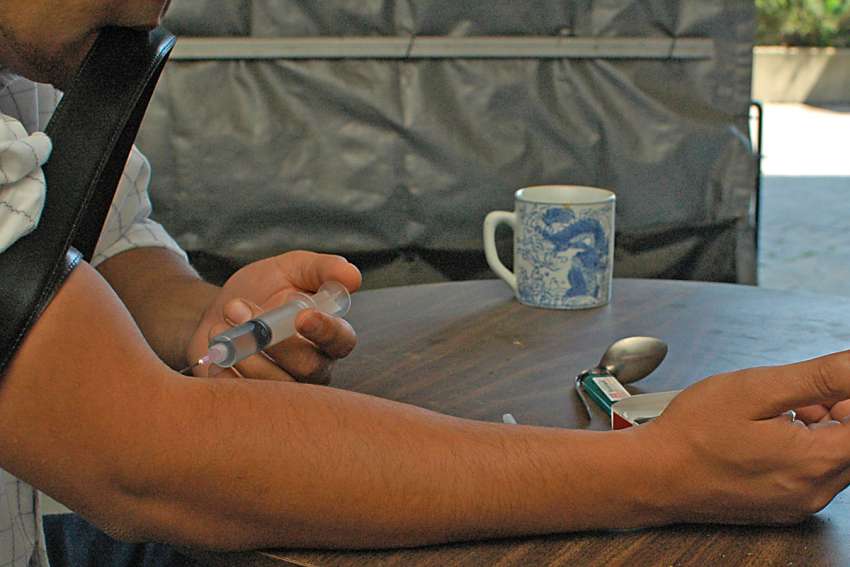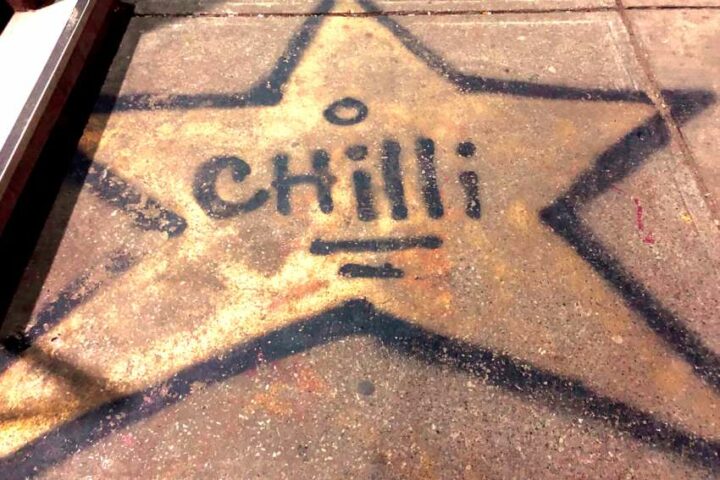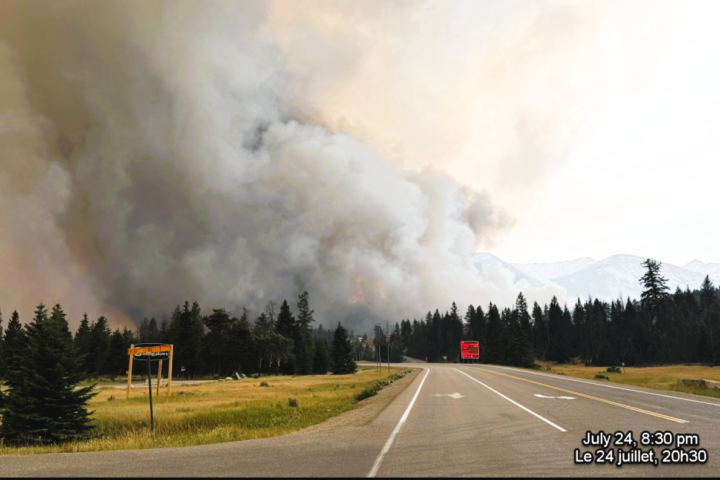As British Columbia throws in the towel on its experiment of decriminalizing hard drugs, admitting defeat in liberalizing its drug laws, the country’s largest city has had its desire to ignore B.C.s evidence and move down the same path quashed by the federal government.
On May 17, the federal government rejected a request from Toronto’s medical officer of health Dr. Eileen de Villa to decriminalize possession of small amounts of hard drugs within the city. De Villa has told media that this represents her best medical advice for public health.
In a statement, Mental Health and Addictions Minister Ya’ara Saks cited safety concerns in denying Toronto’s request.
“She has determined that it does not adequately protect public health and maintain public safety,” the statement said.
Still, Saks had earlier refused to call B.C.’s experiment a failure, telling media, “This is the first time this has been done. As in any pilot, it is a process of learning.”
Toronto’s request, in the face of B.C.’s failures, was met with a hard no from the provincial government as well. On May 16, Ontario Health Minister Sylvia Jones and Solicitor General Michael Kerzner wrote a letter to de Villa stating the province is “100-per-cent opposed” to the city’s bid for decriminalization and vowed to fight against any hard drug decriminalization.
“Under no circumstances will our government ever support your request, which would only add to crime and public drug use while doing nothing to support people struggling with addiction,” their letter said.
De Villa’s request baffled the two ministers.
“We are frankly surprised that, in the aftermath of British Columbia’s decision to walk back its decriminalization experiment, Toronto Public Health has not already rescinded its request,” the Jones and Kerzner letter said.
The Canadian bishops have long been clear in their stand. The bishops released a statement on Canada’s opioid and drug addiction crisis back in 2017. The statement was somewhat prophetic as it highlights concerns that have since become a reality.
“The Catholic Bishops of Canada are deeply troubled by the devastating effects of these drugs, in particular their ability to extinguish human life in an instant. Even when they do not kill directly, their addictive power creates what Pope Francis recently referred to as ‘a new form of slavery,’ ” reads the 2017 statement, signed by then bishops’ conference president Bishop Douglas Crosby of Hamilton.
“In light of the current drug crisis in Canada, however, we are convinced it is important to provide a general orientation in order that the Catholic faithful and other people of good will might better respond to this issue now and in the future, from the national to the local level, both individually and communally.”
Other Catholic organizations were hesitant to comment on decriminalizing hard drugs. The Catholic Register reached out to two organizations that deal with drug education and rehabilitation for comment, but both organizations declined to comment, citing “complexities” surrounding the issue.
It’s been a little over a year since British Columbia chose to decriminalize drugs throughout the province, and the numbers speak for themselves. In 2023, the B.C. Coroners Service reported more than 2,500 suspected illicit drug deaths, the highest number ever recorded. That’s a five-per-cent increase over the previous year. Compare that to 2016, where the bishops’ statement notes there were 914 deaths nationwide from street drug overdoses, that number almost double the previous year’s total.
Still, B.C.’s chief coroner Lisa Lapointe renewed a plea for an expansion of “safer supply” drugs for addicts and a “systems change” that treats substance use as a health, and not a criminal, issue.
Yet still the B.C. government requested and gained federal approval earlier this month to re-criminalize public drug possession, a move that halted the pilot project in its tracks. The request came on the heels of rampant drug use in public spaces, including playgrounds. What was once contained to Vancouver’s Downtown Eastside for the most part had spread across the province. B.C.’s Supreme Court even overturned a provincial law restricting drug use at playgrounds and other areas, a ruling upheld by the Court of Appeal in March.
With all the evidence of the chaos liberalized drugs have caused, from the rising death toll to tent cities in cities nationwide that have turned into drug-fuelled communities, it is hard to understand how any community would consider taking this path. The drug scene in Toronto bears many similarities to the situation in B.C. A quick look at the landscape shows the city is already fighting its own battle despite drugs remaining criminalized. In one three-day period in March, CTV News reported, seven people fatally overdosed on street drugs. That news followed a health unit alert after six people fatally overdosed earlier that month.
Still spread across the city are what Toronto calls “Supervised Consumption Services,” otherwise known as safe injection sites. These “clinical spaces” are locations where individuals are free to use pre-obtained drugs in the presence of trained health professionals, with 10 distinct centres in operation as of last year.
One of the more prominent sites is known as “The Works” located at 277 Victoria St., just steps from Yonge and Dundas Streets in the heart of the city. First opening its doors in 1989, The Works became Toronto Public Health’s first permanent supervised injection service in November of 2017. One of its neighbours was Campaign Life Coalition, which shared a back alley with the injection site for years before moving its Ontario office to Hamilton in 2020.
“It started to get in your face around that time. There is a Tim Hortons across from the site and between those two spots, it would be crowded with people begging for money or camped out there with their belongings on the sidewalk even before tent cities were popular,” said Jeff Gunnarson, national president of Campaign Life.
Due to the proximity to The Works, the reality of safe injection sites was something that Gunnarson and his staff were faced with daily.
“While there was never a situation that we could say was a close call in terms of staff being attacked or abused, what we did see often was people shooting up outside of the building,” he said. “It was shocking to see that and it is one thing to hear about safe injection sites but another to see a guy shoot up — it is disturbing.”
Gunnarson highlighted instances of suspicious behaviour in the shared alley and fights among The Works’ clients. He also voiced his concern for children and students — including nearby St. Michael’s Choir School — who often used the nearby subway to commute along Yonge and Dundas.
“We were not living in fear but the females of the office certainly felt very concerned for their safety going through that. The problem is that you do not know when things are going to erupt,” he said. “We (at Campaign Life) are all Christians and most of us are Catholic so it was not like we hated or condemned them, rather we felt pity for them. At the same time, we had to watch over our shoulders when we walked by there.”
Campaign Life has since moved from its downtown Toronto location, a move Gunnarson confirmed was unrelated to the proximity to the injection site, but said that had they been looking to move into their former location now, The Works would have been a factor.
While no Campaign Life staff were harmed, the same can’t be said for residents near a supervised injection site in the Leslieville neighbourhood. In July 2023, Karolina Huebner-Makurat, a 44-year-old mother of two, was killed by a stray bullet outside of South Riverdale Community Health Centre, which houses a supervised injection site. She was shot when a gun battle erupted between alleged drug dealers who ply their trade in the centre’s vicinity. The incident marked a violent climax to an area that has been described by neighbours as one with increased criminal activity, visible drug use, aggressive behaviour, overdoses and open drug selling since the safe-injection site opened in the area.
Two men have been arrested and charged in Huebner-Makurat’s death, and a worker at the centre has been charged with obstructing justice in connection with the shooting.





